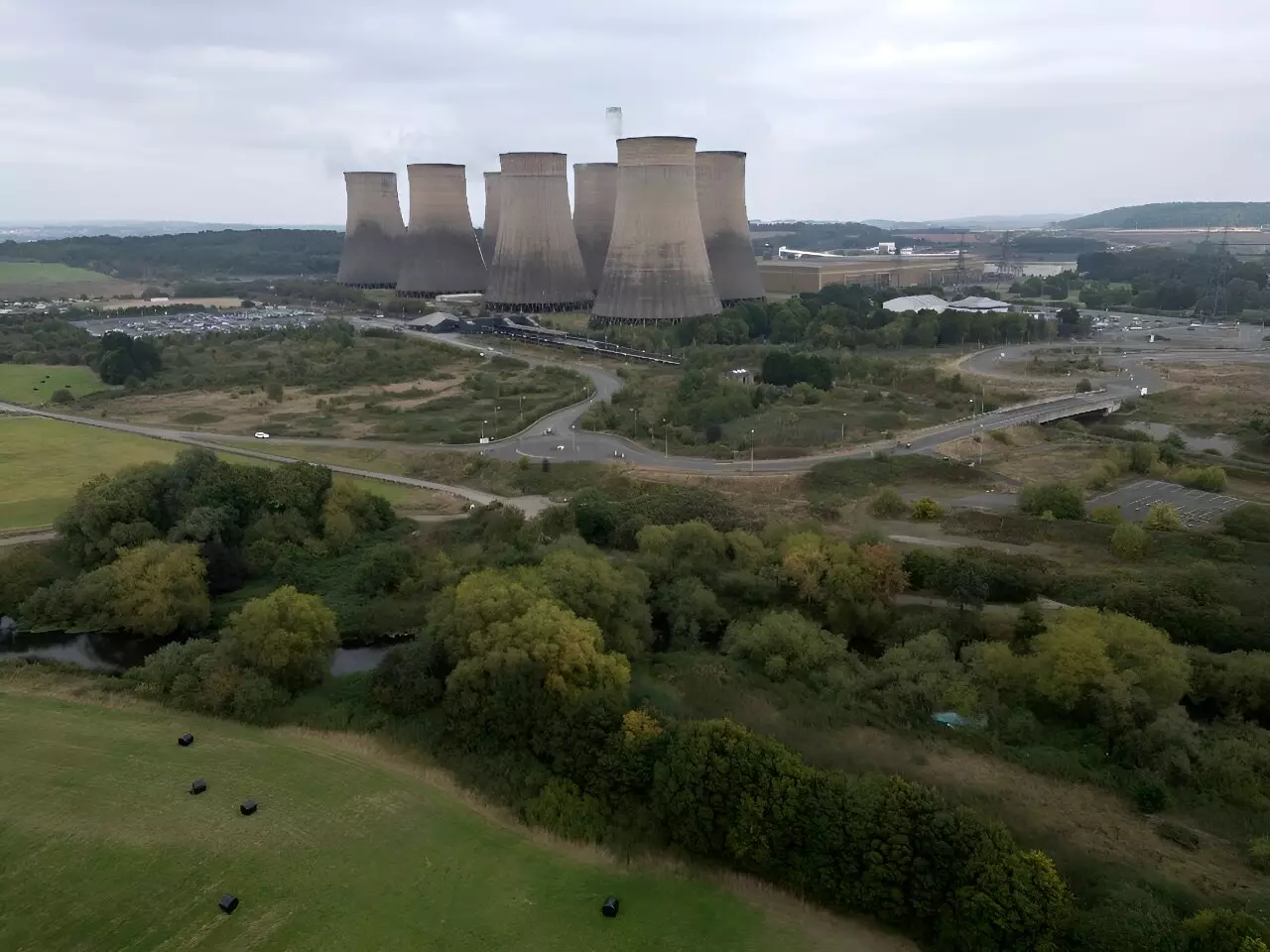The United Kingdom is poised to turn the page in its energy narrative with the closure of its last coal-fired power station, Ratcliffe-on-Soar, officially shutting down this Monday. This monumental decision renders Britain the first member of the G7 nations to sever ties entirely with coal as a source of electricity. For nearly six decades, Ratcliffe-on-Soar stood as a significant landmark in the heart of central England, embodying the nation’s relentless pursuit of energy. This development is not merely a tactical shift; it is a defining moment in the UK’s pledge to decarbonize its energy production by 2030 and achieve complete carbon neutrality by 2050.
Michael Shanks, the UK’s Energy Minister, heralded this transition as a stepping stone towards comprehensive energy reform, suggesting that “the era of coal might be ending, but a new age of good energy jobs for our country is just beginning.” This perspective pivots the narrative from one of loss to opportunity, signaling a broader shift towards sustainable job creation in the renewable energy sector.
Uniper, the operator responsible for Ratcliffe-on-Soar, has announced that the plant will undergo a two-year decommissioning phase starting in October. The fate of the 350 employees and contractors who currently work at the site has been a point of concern; Uniper has committed to redeploying many within the company while instituting a series of redundancy phases that may affect some workers as soon as 2026. This balancing act prioritizes human resources while enabling the company to transition towards a vision of a “carbon-free technology and energy hub”—an optimistic glimpse into the future of energy production in the UK.
In a global context, the UK’s decision serves as a beacon for other nations, especially fellow G7 countries grappling with their coal dependence. Countries such as Italy, France, and Germany have set timelines to end their coal usage, yet none have matched the UK’s decisiveness. Doug Parr, Policy Director at Greenpeace UK, argues that Britain is setting a precedent that should inspire other nations to eliminate fossil fuel dependency comprehensively. However, there is a pressing need to extend similar commitments to oil and gas resources in future climate discussions, particularly in light of reaffirmations made at COP28.
Coal played an unmistakable role in the UK’s historical economic development, underpinning the Industrial Revolution and establishing the country as a powerhouse on the global stage. Nonetheless, as societal values evolved and awareness of environmental impacts increased, coal’s share in the UK’s electricity mix experienced a meteoric decline—from about 70% in the 1980s to a mere 1% last year. Such statistics underscore a broader trend toward renewable energy alternatives, with natural gas now supplying a third of the nation’s electricity and wind power accounting for over a quarter.
Tony Bosworth from Friends of the Earth aptly contextualizes this shift, stating that while coal once acted as the backbone of power generation in the UK, its legacy must now be regarded purely as history. The immediate challenge lies in transitioning away from gas dependency, which involves harnessing the vast renewable energy resources available within the country. The latest statistical insights from the National Grid ESO indicate that the energy landscape continues to evolve—demonstrating not only a rapid move towards renewables but also the need for legislative action and government intervention to expedite this transformation.
The Vision Ahead: A Sustainable Energy Future
The newly elected Labour government has seized the opportunity presented by this historic closure to introduce ambitious plans aimed at further decarbonizing Britain’s energy mix. Their flagship green energy initiative focuses on establishing a publicly owned entity tasked with investing in offshore wind, tidal power, and nuclear energy, signifying a commitment to building a diversified and sustainable energy portfolio.
As Ratcliffe-on-Soar exits the stage, it is crucial to recognize the broader implications of this transition—not only for employment and energy security but also for international climate commitments. As the public and leaders alike look towards the future, the urgency to phase out outdated energy practices is evident. The road may be long, but the path paved with coal’s demise presents an opportunity for innovation, growth, and a cleaner energy horizon for generations to come.

